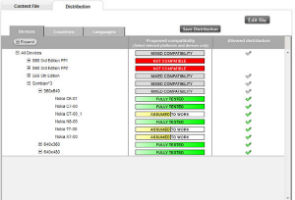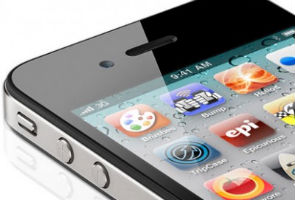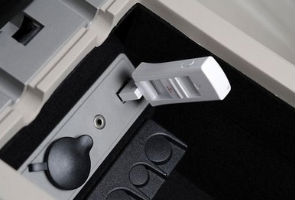Tokyo: Even in a country whose people are known for walking in lockstep, a national consensus on the proper code of behavior has emerged with startling speed. Consider post-tsunami Japan as the age of voluntary self-restraint, or jishuku, the antipode of the Japan of the "bubble" era that celebrated excess.
Members of the Japanese Red Cross sought donations in downtown Tokyo for earthquake and tsunami relief programs.
With hundreds of thousands of people displaced up north from the earthquake, tsunami and nuclear crisis, anything with the barest hint of luxury invites condemnation. There were only general calls for conservation, but within days of the March 11 quake, Japanese of all stripes began turning off lights, elevators, heaters and even toilet seat warmers.
But self-restraint goes beyond the need to compensate for shortages of electricity brought on by the closing of the Fukushima Daiichi nuclear plant. At a time of collective mourning,
jishuku also demands that self-restraint be practiced elsewhere. Candidates in next month's local elections are hewing to the ethos by literally campaigning quietly for votes, instead of circling neighborhoods in their usual campaign trucks with blaring loudspeakers.
With aggressive sales tactics suddenly rendered unseemly, the giant Bic Camera electric appliance outlet in central Tokyo has dropped the decibels on its incessant in-store jingle, usually audible half a block away. At the high school baseball tournament in Osaka, bands put away their instruments; instead, cheering sections have been clapping by hitting plastic horns together.
There are also doubts about whether it is proper to partake in the seasonal pleasures that regulate much of Japanese life.
"At this time of the year, we'd usually be talking about going to see cherry blossoms," Hiroshi Sekiguchi, one of the country's best-known television personalities, said on his Sunday morning talk show.
In fact, cherry blossom viewing parties and fireworks festivals have been canceled.
Graduations and commencements have been put off. Stores and restaurants have reduced their hours or closed. Cosmetics and karaoke are out; bottled water and Geiger counters are in.
It is as if much of a nation's people have simultaneously hunkered down, all with barely a rule being passed or a penalty being assessed.
"We are not forced or anything," said Koichi Nakamura, 45, who runs a karaoke shop in Kabukicho, Tokyo's famed entertainment district, where customers looking to sing their lungs out have all but vanished. "I hope it will somehow contribute to the affected areas."
The almost overnight transformation is likely to continue for months, if not years. The hot summer ahead is expected to further strain the nation's electrical network, leading to more disruptive blackouts that make it hard for business to be conducted the Japanese way, face to face and often into the night. The vast entertainment industry that greases corporate Japan, including sushi bars and cabarets, is likely to be deeply hurt.
As effective as the self-restraint has been -- conservation measures have allowed Tokyo Electric Power to cancel some planned blackouts -- the continued scaling back is likely to have a corrosive effect on Japan's sagging economy. While the government will spend heavily to rebuild the shattered prefectures to the northeast, consumer spending, which makes up about 60 percent of the economy, will probably sink; bankruptcies are expected to soar.
Had the disasters hit a more distant corner of the country, things might have been different. But because Tokyo has been directly affected by the blackouts and the nuclear crisis, the impact has been greater. The capital and surrounding prefectures, where so many companies, government agencies and news media outlets are located, account for about one-third of the country's gross domestic product.
Japan has gone through spasms of self-control before, including after the death of Emperor Hirohito in 1989. This time, though, self-restraint may be a way of coping with the traumatizing scale of the loss of life as well as the spreading fears of radioactive fallout, according to Kensuke Suzuki, an associate professor of sociology at Kwansei Gakuin University in western Japan.
"With the extensive coverage of the disaster zone, jishuku has become a way for people in Tokyo to express solidarity at a time of crisis," Professor Suzuki said in an e-mail. "Jishuku is the easiest way to feel like you're doing something, though perhaps there isn't much thought put into how much these actions make a difference over all."
But outliers, like Japan's Communist Party, have explicitly rejected a calmer tenor to their campaigning, saying that it would rob voters of valuable information about candidates.
Another objector was Yoshiro Nakamatsu, 82, who despite a past draw of only a few thousand votes was running for Tokyo governor for a fifth time. Mr. Nakamatsu -- an inventor who claims credit for hundreds of gadgets -- campaigned in front of his truck in Ginza on Sunday, standing on top of what he described as a stretching machine that would prevent deep vein thrombosis.
As a loudspeaker played a recorded speech, he described campaigning by walking or riding a bicycle as something from "another era."
There were other opponents of self-restraint. While the ethos has been strongest in northern Japan and in the Tokyo area, western Japan appeared split. Kobe, the site of a 1995 earthquake, was firmly in favor.
But Toru Hashimoto, the governor of Osaka, Japan's second-biggest city, said too much holding back would hurt the economy. Echoing President Bush after the attacks on Sept. 11, 2001, Mr. Hashimoto urged people to spend even more, so as to support the economy; some businesses are helping by donating part of their proceeds to affected areas.
In Tokyo, though, there was no debate.
At Hair ZA/ZA, a salon in the Shin Koenji neighborhood, appointments have dried up because so many school and corporate ceremonies have been canceled. The rolling blackouts could also make it hard for customers to keep reservations, according to Takayuki Yamamoto, the salon's chief hair stylist.
This has upended Ayaka Kanzaki's plans to pass the salon's tests for new stylists. The exam includes three components: cutting, blow-drying and hair coloring. Ms. Kanzaki, 21, passed the cutting section, but to qualify for the hair coloring test, she must recruit 20 models. So far, she has managed just seven and is worried about getting 13 more.
The salon's efforts to reduce electricity use have made it difficult to practice after hours, too. In addition to turning off the lights, training with blow dryers has been stopped. Ms. Kanzaki, however, keeps any frustration to herself.
"I'm not the only one in this condition," she said, in a remark that typified Japanese selflessness. "Others are, too."














































